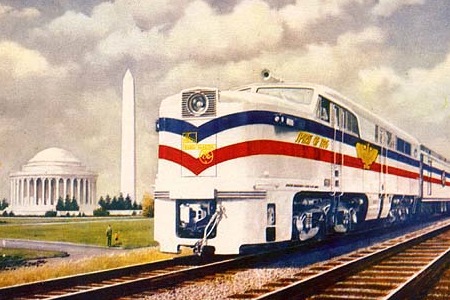Could We Actually Learn Something from '50s-Style Civics Education?

 During last year's presidential campaign, I asked a class of freshmen students to keep track of each candidate's references to history. They needed a basic knowledge of history -- enough to code each historical mention according to the time period referenced. I was prepared to be distressed by my students' ignorance of history, and I wasn't disappointed. I wasn't as prepared, however, for the much greater ignorance of and disinterest in the election. In September, few could name both presidential candidates; none could name a candidate for any other office; only two or three evinced much interest in civic life.
During last year's presidential campaign, I asked a class of freshmen students to keep track of each candidate's references to history. They needed a basic knowledge of history -- enough to code each historical mention according to the time period referenced. I was prepared to be distressed by my students' ignorance of history, and I wasn't disappointed. I wasn't as prepared, however, for the much greater ignorance of and disinterest in the election. In September, few could name both presidential candidates; none could name a candidate for any other office; only two or three evinced much interest in civic life.
Historically, students have been encouraged -- and sometimes even coerced -- to act also as citizens. When most of us think of Cold War-era civics education, we assume it was more or less synonymous with anticommunism, patriotic coercion, and/or conservatism. Historians of the period have shown that efforts to educate schoolchildren and the broader public, particularly in civics, were primarily intended to support anticommunism efforts at home and abroad. Initiatives sponsored by the business world also sought to convince Americans that a system of “free enterprise” was the foundation of all that was good on Earth. So yes, it's certainly true that civics was often steeped in anticommunism and conservatism. But there are more positive ways of looking at some of the attempts to enlighten the public and awaken a stronger sense of civic engagement within postwar Americans. As I struggled this past fall with college students who not only reject voting on a personal level, but also apparently dismiss the basic principles of democracy, I sometimes wished for the kind of civic spirit that, at least at its best, encouraged high rates of political participation.
One of the best known early Cold War campaigns was the Freedom Train of 1947-1948. Few historians have found reason to celebrate this amazing effort that brought more than two hundred vital historic documents, including copies of the Magna Carta, the Declaration of Independence, the Constitution, and the Emancipation Proclamation, to citizens in every state. Instead, we treat the train as an effort by business to persuade the public to support free enterprise. In fact, the Freedom Train set out to accomplish two missions: convince Americans to be pro-business and educate them about democratic society. It brought Americans together around the idea that everyone had certain rights and responsibilities that were absolutely essential to the maintenance of contemporary society. Rights included not only free enterprise but also free speech, freedom from racial and religious discrimination, and the protection of voting rights. Responsibilities included educating oneself about the issues of the day, enthusiastically serving on juries, and, notably, paying one's fair share of taxes.
By the 1960s this rhetoric sounded hollow -- and that's how historians have treated it, too. But we should remember that the conservative sponsors of the Freedom Train operated in a setting that today seems almost fantastically liberal, especially regarding taxation. When they demanded that all Americans accept their version of American values and the status quo, the top marginal income tax rate was 91% (today's top rate is 39.5%). While the Freedom Train was coercive and dominated by corporate interests, the sought-after consensus included the idea that every American must contribute to society's well-being through the payment of fairly high taxes. In contrast to the conservatives of the 1940s, today you would be hard pressed to find anyone on the right supporting an explicitly pro-tax campaign, even with today's historically low rates.
More broadly, the Freedom Train campaign worked to explain to every American how they benefitted personally from their citizenship. Speakers, articles, pamphlets, radio spots, and films all argued that individuals reaped incalculable rewards from their covenant with U.S. government and society, including growing infrastructure, an expanding safety net, the legal system (perfect, of course), and good public schools. Without disregarding the many good reasons that this covenant was rejected in the sixties, it seems worth pointing out that today many Americans apparently lack any sort of understanding of the function of their own government, the system and purpose of taxation, or the web of dependency that binds society together. Thus even Obama's obvious statement that entrepreneurs never create successful businesses entirely on their own (rather benefitting from all sorts of public investment) threatened to derail his reelection campaign. We simply don't think about our relationships to other people, to society, to government, in this way. No one may admit to being dependent on government, and that means we minimize the supporting role that the rest of society has in our individual lives.
I don't suggest that we revive the Freedom Train, but I do think that we might start to look at such efforts differently, judging them not by only by their defects as compared to the "purer" social movements of the sixties, but also by their support for a liberal consensus that strove, however imperfectly, to secure a just and participatory society based above all on the idea that we're all in this together.
